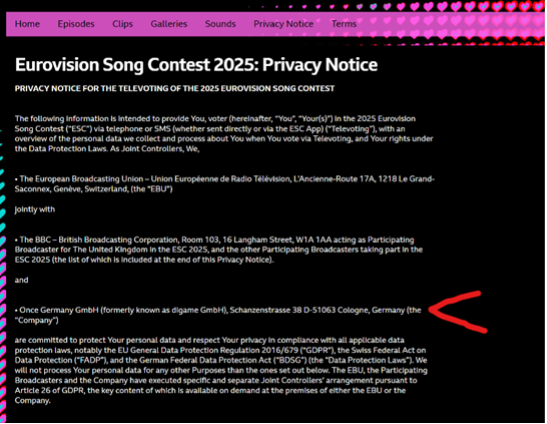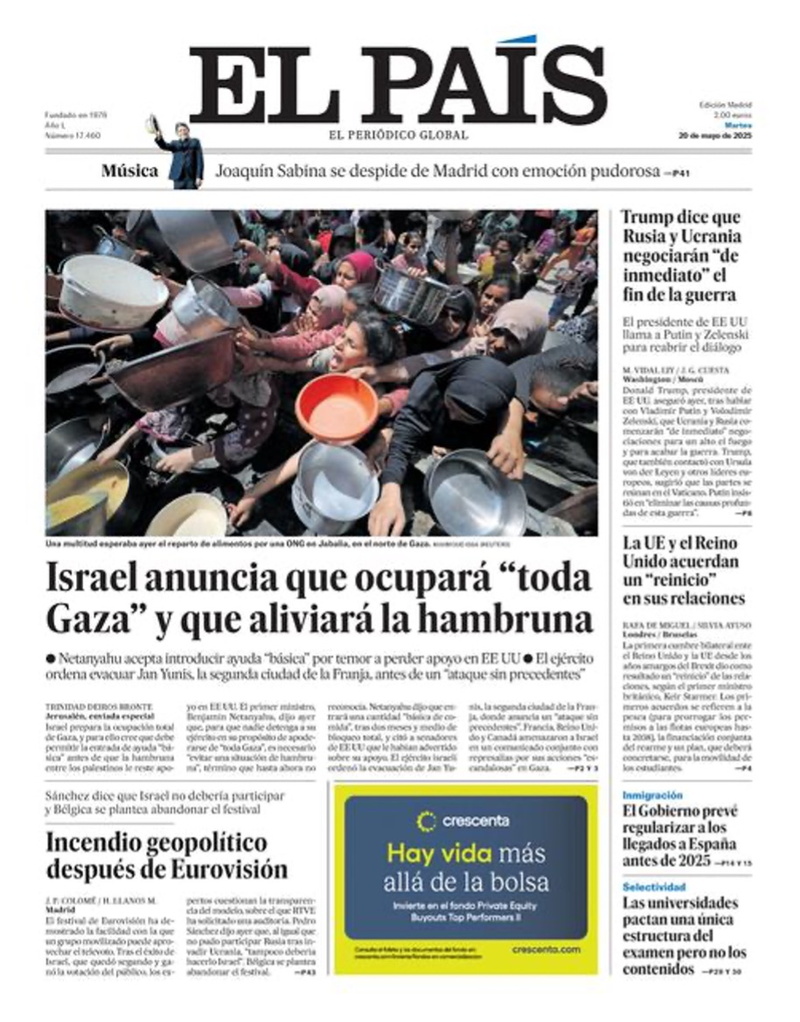Fury at EUROVISION as 'Too Cheap' Tech leaves broadcasters, voters fuming
Our takeaway: Don’t be surprised if the tech solution you under-invested in ends up letting you and your clients down in the most public way possible
Leading European broadcasters who covered this year’s Eurovision Song Contest are turning on organisers and in turn the tech company Once Germany GmbH who ran the ballot after Israel defied high-profile political opposition and placed second on the back of popular support through a controversial ‘pay to play’ digital voting system.
Broadcasters who have formally protested to the European Broadcasting Union, which runs the event, include Ireland’s RTE, Spain's RTVE, VRT in Belgium and Yle in Finland.
The competition was won by Austria’s JJ, whose track Wasted Love earned 436 points.
Austria's JJ wins Eurovision 2025 with opera-techno fusion
— FRANCE 24 English (@France24_en) May 18, 2025
➡️ https://t.co/l3gRP8zcMZ pic.twitter.com/5D4jokO0Lb
But Israel’s entry, sung by Yuval Raphael, herself a survivor of the October 2023 terrorist atrocities, came second on 357 votes. She failed to impress many of the professional Eurovision juries in each participating countries.
Yuval Raphael, Israel's representative to the Eurovision contest, recreates Theodore Herzl's iconic photo on the balcony of the Basil Hotel in Switzerland.
— Maccabee Task Force (@MacTaskForce) May 16, 2025
Two icons, one dream.
Go Yuval! pic.twitter.com/QfNGhE8iao
The Eurovision scoring system awards an equal number points from both a professional jury and the public vote, with a maximum of 12 points available from each.
Despite their juries awarding Israel zero points, voters in both Spain and Belgium awarded Raphael the full 12 points.
The public voting is run by Once Germany Gmbh as the BBC’s privacy statement makes clear. The company also has offices in Amsterdam and Lucerne.
Consumers can purchase upto twenty votes per payment solution which they can distribute either ‘en bloc’ to a particularly favoured singer or divide up between preferences.
Voted #Eurovision pic.twitter.com/xo9Xoeqjp6
— Gabriel 🍁 (@vodimtenigranku) May 17, 2025
The competition rules mean there is a cap of 20 votes per device or payment card. But if there were two of you with one mobile device each and eight separate bank cards, the podcasters ESCInsight.com have demonstrated how you could make a total of 160 votes over a period of five minutes.
ESCInsight.com, home of the Unofficial Eurovision Song Contest Podcast, said the system allowed for those 160 votes to be directed ‘in the main for the same subset of countries, not a wider selection. This was also done without any change of device, IP, VPN, location or email address during the process, and each time they received the recorded message from the artist and a receipt of payment to show that the votes were received.’
The main concern of organisers that operate a online ‘voting’ platform that captures and processes ultra-peak demand that falls in a specific and narrow time window is to ensure that all verifiable users can vote — and pay — within the brief voting window.
To make that happen, Once’s system prioritises making sure that users are human, blocking bots and malicious attacks.
🔴 ÚLTIMA HORA | TVE solicitará este lunes una auditoría del televoto español recibido durante la final de Eurovisión https://t.co/g27ElqeRsL
— EL PAÍS (@el_pais) May 18, 2025
Nowhere was the reaction to the popular vote more intense than in Spain where newspaper El Pais linked Israel’s actions in Gaza with the ‘incendiary’ geopolitical controversy of Eurovision on their front page. The newspaper quoted Luis Panizo, a professor at the University of Leon as saying, ‘Mobilization is important’.
‘But what concerns me is that no electronic voting system is secure if it isn’t verifiable, and to achieve that, it must be transparent in how it operates. All the details of its operation — its code, the vote processing and storage systems, the counting, the details of the transmission of the record, and the publication of the results — must be known before, during, and after the results. Otherwise, it can’t be audited. You can’t do a forensic audit if you haven’t been involved in the entire process.’
There are more robust and sophisticated electronic voting systems but, according to Panizo, the best of them haven’t been especially successful. ‘Recently, more than 20 companies offering remote voting have popped up. We’ve audited some, and the best ones don’t get hired. Not because they’re slightly more expensive, but because people prefer ease of use and access to early statistics over a system that is closed, auditable, and verifiable,’ he said.


